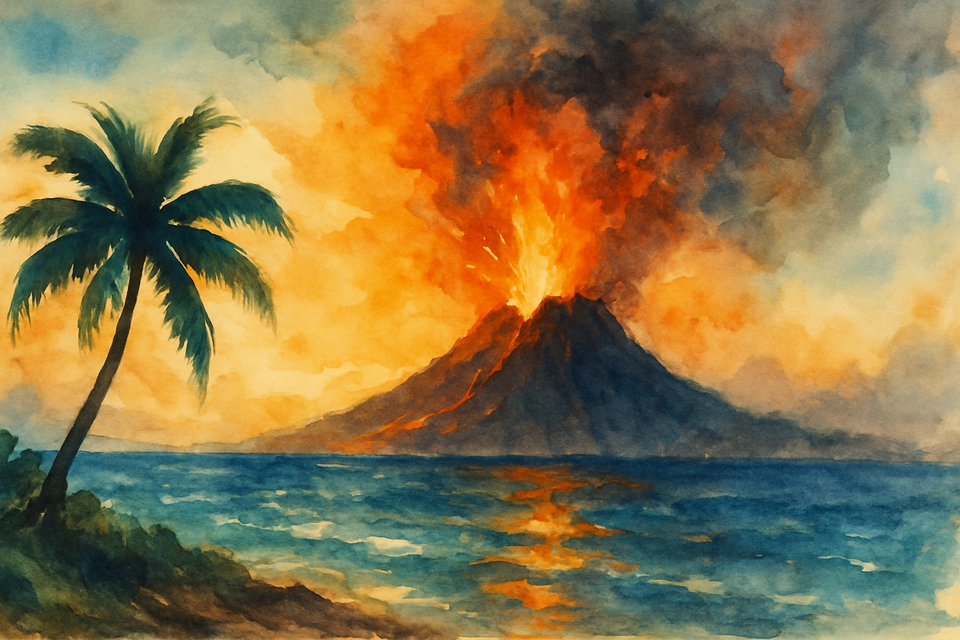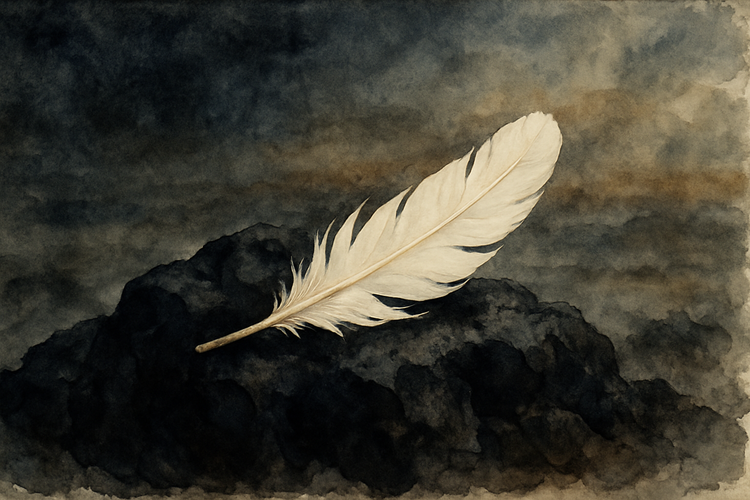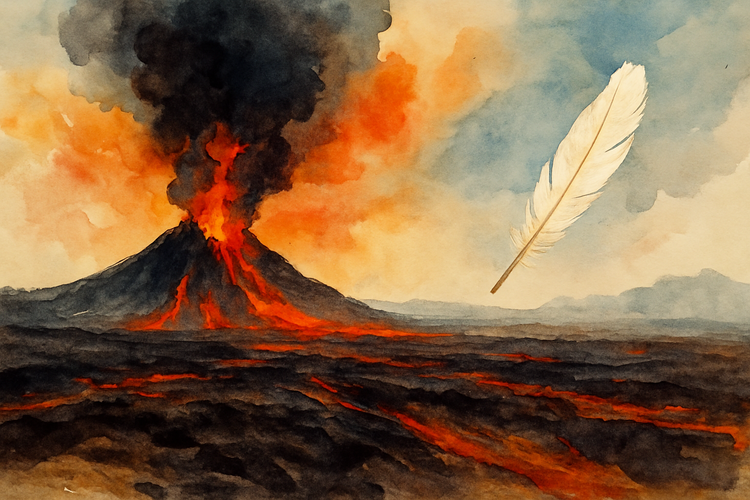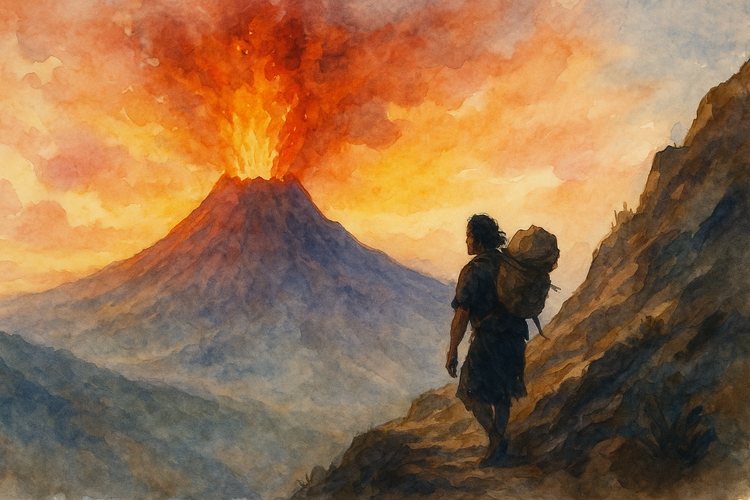Chief of War Season One Cornerstone: Prophecy, Power, and the Silence of the Gods

Spoiler Warning: This reflection reveals events from the series Chief of War.
From the seer’s black eyes on a lonely shore to armies swallowed by the black desert, Chief of War traced a season where prophecy, ambition, and silence clashed across Hawai‘i. What began as a tragedy edged with myth unraveled into a confrontation with law, chaos, and intrusion from beyond the horizon. Nine episodes built a tapestry that wove together family, faith, and empire, each thread marked by betrayal and burden. This essay gathers them together — not as summary, but as a spine, a way of walking back through what the season meant.
The Weight of Prophecy
The premiere, The Chief of War (S1E1), charged the entire series with the force of prophecy. Ka'iana’s encounter with the seer on the beach was not presented as superstition but as lived reality, a vision whose inevitability weighed on every decision. From that moment forward, prophecy became the story’s gravity, pulling him back into Maui’s council, binding chiefs to war, and cloaking political necessity in divine inevitability. The massacre at the temple showed how quickly prophecy could be corrupted, transformed from promise into pretext for slaughter.
By Changing Tides (S1E2), prophecy was no longer distant but contested. Kahekili tried to seize it by force, deceiving his own son into believing O'ahu was preparing for war. Ka'iana, torn from his family, was carried into exile with foreigners — proof that prophecy’s hold was slipping, that destiny was no longer a story confined to Maui but one colliding with a widening world.
When City of Flowers, Part I (S1E3) introduced Kamehameha in full, the prophecy of the comet returned with renewed weight. His endurance beneath the waves and his foresight in storing food marked him as a leader shaped for survival, not only by myth but by preparation. Yet prophecy also pressed on Ka'ahumanu, who carried her own vision of barrenness, a secret she must never share. The union between her and Kamehameha was staged as sacred, but already it carried cracks.
In Part II (S1E4), prophecy narrowed into silence. Kahekili clung to it as justification for wiping out rival bloodlines, while Kamehameha stood before the gods of war and heard nothing. Into that silence stepped Ka'ahumanu, defying her father to counsel him directly: he must choose wisely, not merely wield power. The season’s pattern was set. Prophecy would not dictate. It would leave gaps, and in those gaps, people would make choices that carried the weight of gods.
Law, Chaos, and Human Choice
By midseason, the story pivoted from visions to law. The Race of the Gods (S1E5) opened with Kamehameha teaching children how to plant taro, a scene that seemed small until its symbolism deepened. In his hands, cultivation became its own kind of prophecy — faith in continuity, patience in growth. Against this stood Keōua, lashing himself against steam vents in rage, and Vai, who confessed she had never felt the gods at all. The sled race that followed, thundering down cooled lava slopes, became ritual itself, faith enacted in motion.
The Splintered Paddle (S1E6) sharpened this turn. Amid rebellion and madness, Kamehameha proclaimed a law of peace: violence forbidden except in self-defense. It was luminous, radical, fragile. Around him, chaos reigned — Keōua burned his father’s sacred headdress, Kahekili sank deeper into visions, Ka'iana declared that in the foreign world there were no gods. Law here was not backed by abundance or divine sanction. It was a gamble staked on conviction alone.
This divide between cultivation and chaos, between law and rage, carried through the back half of the season. The Sacred Niu Grove (S1E8) pressed it hardest: Ka'iana shouldered his brother’s bones up a mountain in reverence while Keōua sacrificed priests to molten lava and Kahekili stabbed his own son in a frenzy. Where prophecy corroded into zealotry, human choice still carved dignity out of grief.
Foreign Shores, Fractured Bonds
Threaded through every episode was the intrusion of outsiders. From Ka'iana’s wanderings in Alaska and the East Indies in City of Flowers to the cannons that tore through villages in Day of Spilled Brains (S1E7), foreign presence reshaped the frame of destiny.
Ka'iana embodied the contradiction: he railed against the dangers of outsiders yet wore their clothes, used their guns, and carried their imprint. His loyalty to Tony, the Black sailor he rescued from the violence of empire, revealed that bonds, not prophecy, defined him. Yet those bonds frayed at home, where absence had left room for betrayal. His return to Hawai'i was met with both tears of joy and the quiet fracture of his brother’s affair with Kupuohi. Forgiveness came in The Black Desert (S1E9), not as vengeance but as burden accepted.
Ka'ahumanu, too, was reshaped by intrusion. Her hand was kissed in mock-European fashion by Kaʻiana, and the gesture lingered — both mimicry and temptation. Her counsel steadied Kamehameha more than prophecy ever did, yet she carried the weight of a vision that denied her heirs. For her, intrusion was not only from foreign sails but from prophecy itself, a limit imposed on her most intimate role.
The arrival of the pale-skinned intruders exposed the fragility of Kamehameha’s law. Hospitality faltered against cannon fire; restraint crumbled before empire. What lingered was not law betrayed but law revealed — shown to be fragile not because it lacked wisdom, but because the world beyond the islands did not share its codes.
Where the Story Faltered
For eight episodes, Chief of War balanced mythic weight with human fallibility. Prophecy was ambiguous, law fragile, intrusion devastating but believable. Then came The Black Desert (S1E9).
The cooled lava fields should have been the season’s climax: armies massed across black stone, chiefs taunting across the expanse, muskets flashing beside spears. Instead, the ground literally split, swallowing soldiers whole. What once was Shakespearean tragedy edged with myth tipped into disaster spectacle. Where silence once carried weight, a feather falling from the idol of the war god was treated as clear revelation. Where ambiguity once made prophecy compelling, stagecraft replaced tension.
Yet even in that chaos, quieter images endured. Ka'iana forgiving his brother. Kupuohi striking down the lunatic chief. Ka'ahumanu steadying the men toward alliance. These gestures reminded us of the show that had been — one where prophecy’s silence gave space for human burden, where law was declared in defiance of vengeance, where grief was carried up a mountain stone by stone.
Closing Reflection
Taken as a whole, Chief of War traced prophecy’s corrosion and law’s fragile emergence. Its strongest moments were not gods speaking, but humans acting in their absence: Kamehameha teaching children to plant, Ka'iana lashing bones to his back, Ka'ahumanu crossing forbidden lines to counsel. These images trusted the human scale of history, finding tragedy and dignity in burden.
If the finale stumbled, the season still left a spine worth remembering. From seers to cannon fire, from taro roots to black deserts, the story carried us through a world where prophecy may begin the tale, but it is fallible hands that finish it.



Comments ()